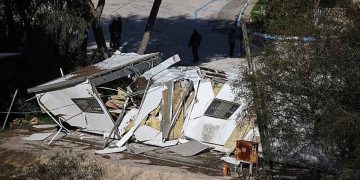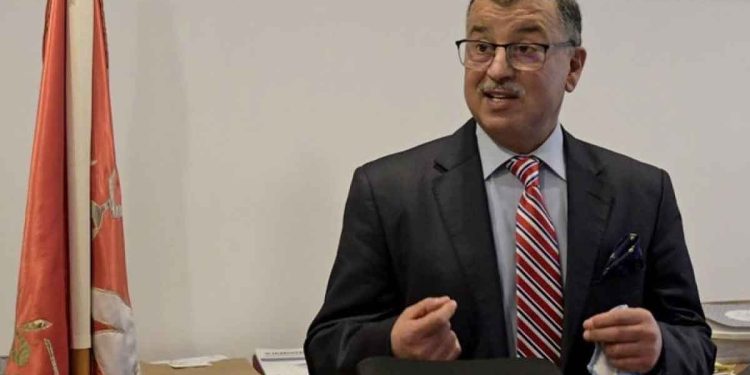In Tunisia, a military court has issued a decision to “arrest” former law dean Abdel Razzaq al-Kilani. Al-Kilani’s lawyer has described the decision as “political par excellence.”
Al-Kilani faces charges of “joining a group that disturbs public peace”, and threatening a public official.
The accusations were made of al-Kilani after he travelled to the Bizerte governorate, in north Tunisia, to see his client, Noureddine al-Behairi, a leader of the Ennahda party. Al-Buhairi was arrested over one month ago, and has been detained since.
In a statement, Malik Ben Omar, a member of al-Kilani’s defence team, has said that “the Military Court’s investigating judge has issued a decision to arrest al-Kilani, marking a dangerous precedent in the history of Tunisia and the judiciary.”
The decision is “a blow to lawyers and to their legal immunity as they carry out their work, and indeed to all principles, laws and rights in Tunisia”, Ben Omar added.
“The investigative judge’s decision is really that of President Kais Saied and Interior Minister Tawfiq Sharaf al-Din,” he continued. “This is a political decision par excellence: illegal, unconstitutional, and immoral.”
“The case itself is almost laughable. It is baseless, and recordings prove that.”
“The defence will take the necessary legal measures and appeal against this ruling”, continued Ben Omar.
“The lawyers opposing this decision will announce their steps shortly”, he added.
Appearing before the Military Court in Tunis this morning, Wednesday 3 March, al-Kilani was accused of “joining a group that disturbs public peace, and threatening a public official.”
Al-Kilani is a former law department dean and member of al-Behairi’s defence team. Al-Behairi a leading member of Ennahada, the largest bloc in Tunisian’s suspended parliament, has been detained under house arrest since 31 December 2021.
On 3 January last year, the Minister of Interior, Tawfiq Sharaf al-Din, announced the prosecution of several people involved in the alleged storming of a security services building in Bizerte, including al-Behairi.
Tunisia has been in a political crisis since 25 July last year, when said imposed a number of “exceptional” measures, including the suspension of parliament, legislation by decree, and the dissolution of the Supreme Judicial Council.
Since July 2021, journalists, activists, and both media and human rights organisations have been subjected to various restrictions. Several have faced arrest and prosecution.































